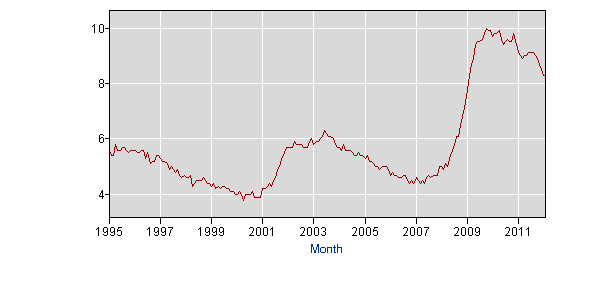REWahoo
Give me a museum and I'll fill it. (Picasso) Give
According to The looming U.S. labor shortage - MarketWatch, we're focusing on the wrong "jobs" problem.
When's the last time you saw something like this proposed:We have a domestic economy that appears capable of adding 250,000 or more jobs a month for the foreseeable future. At the moment we are fortunate to have enough slack labor to fill most of these positions, but what happens after a few years of labor absorption when the baby boomer retirement movement really accelerates? Will paragons of the baby boomer era like Citigroup, Bank of America, AT&T, and General Electric, which combined have over 1.1 million employees, be able to find enough skilled workers to fill spots vacated by retirees?
The other issue is employment isn’t evenly distributed across industries and geographies. I have never worked with anyone over the age of 55. I am sure that Facebook, LinkedIn, Google, and Apple aren’t sweating the looming baby boomer retirement trend.
But what about employers in government, health care, and education in suburban and rural communities, where older workers are concentrated? Who will step in to take those jobs and fill tax coffers to pay for the health care and pensions of retirees?
We’re going to need a lot more automation and job destruction from tech and engineering companies.

